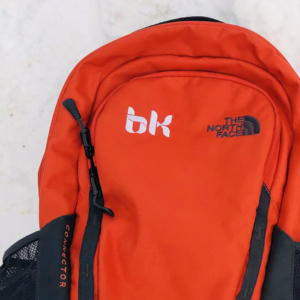The Difference Between SEM and Paid Social Media Advertising (And Why You Need Both)
In the digital marketing world, paid advertising plays a vital role in driving traffic to your site.
And two heavy-hitters in any effective paid advertising strategy are paid social media advertising and search engine marketing (SEM).

SEM and paid social work like highway signs to deliver undiscovered information to prospects, while also directing people who already know what they’re looking for.
But what’s the real difference between these two paid strategies?
SEM and paid social media advertising attract different people at different stages of the buying cycle.
Paid social media advertising flexes its muscle when it comes to finding and targeting your ideal audience — even if they aren’t aware you of your product exists yet. Your audience engages with paid advert when they’re leisurely browsing through social platforms.
On the other hand, SEM shines when users are ready to buy what you’ve got to offer. These leads are already warm and looking for the best place to spend their money — which is why SEM ads tend to have a much higher cost per click than paid social media advertising.
Here’s how paid social advertising and SEM work as a team to help guide your lead from their initial interest to their decision to buy.
What is Paid Social Media Advertising
Paid social media advertising is similar to traditional advertising, in that it helps build awareness around your company’s product, service or solution.
Think of it like traditional advertising, such as a magazine ad or a billboard. With paid social advertising, your company pays to have your product or service put directly in front of an audience that has been targeted based on general demographic information.
But paid social offers what traditional advertising doesn’t — the ability to zero in on your target audience to get your ad in front of the right person.
Build Brand Awareness
Social media advertising is highly effective for generating top of funnel awareness.
It provides a first touch-point for audiences to hear about your brand name and product, and quickly move them into the next stage of your funnel for downstream marketing. And the more touch-points your business has throughout the funnel, the more likely your lead is to buy what you’re selling.

Find Your Audience
Sometimes your audience isn’t exactly who you think it is.
Custom and lookalike targeting on platforms like Facebook helps eliminate the guesswork by pixel tracking users from your site and comparing that to Facebook’s databases of user information.
A custom audience lets you find and target existing leads on Facebook by uploading their email address (or other info), and a lookalike audience uses the custom audience as a seed list to find new, similar users.
This means Facebook will find the audience that is most likely to be interested in your product or service based on your best existing customers, rather than relying on broad demographic targeting.
One ad unit, Facebook Lead Ads, makes this easier than ever by eliminating the need for a landing page, thereby letting users sign up for more info or download branded content without leaving Facebook or disrupting their user experience.
Move Leads Through the Buying Funnel
In some cases, your target audience might not even realize they have the problem that your product or service can fix.
That is, until an ad in their Facebook feed or Instagram shows them how much warmer their winter coat could be, or that a local delivery service can bring wine straight to their door so they don’t have to leave the house.

https://twitter.com/chelseabfrei/status/927982594242891777
Everyday, we offer-up sensitive information to our social media profiles that is used to advertise products and services aligned with our personal interests.
Facebook leverages this self-volunteered user info such as full name and email address to pre-populate a lead form.
This means users only need to click the ad and click “submit” to download a piece of content, join an email list, receive a discount code, and more.
And once your leads inch further down the buying funnel, many still use social platforms to learn more about the product that piqued their interest. 75% of social users ages 18–26 use product recommendations on social platforms to inform their purchase decisions.
What is Search Engine Marketing (SEM)?
As the name implies, search engine marketing focuses on displaying your service or product in front of someone searching for or showing interest in similar topics or products.
When your leads are looking for a new product or service online, chances are the first place they go is their search engine — Google, Bing, Yahoo, you name it.
On average, Google processes over 40,000 search queries every second, which translates to over 3.5 billion searches a day worldwide.
With SEM, you can ensure your business’s site is one of the top search results to provide whatever relevant product or service your lead is looking for.
Move Leads to Bottom of Funnel
SEM is ideal for capturing leads at the middle or bottom of funnel.
Your leads are already warm and actively searching for what your business has to offer — whether they know about your not. SEM offers a final touch-point for leads when they’re ready to buy what you’re selling.
End Their Search
Although organic search optimization through a solid link building and SEO strategy is crucial for your site’s long term search engine visibility, SEM allows you to virtually buy your way to the top of search results.
Not only that, but you can customize your appearance in search results. So instead of your usual website’s title and description that shows up in organic results, you can add a descriptor that calls out to a specific sale or product as it relates to the search query given.
Learn 5 Ways to Improve Your Brand’s Organic Search Presence >
Test for Best Results
The ability to turn on the flow of relevant traffic to your website is a powerful sales tool. This is especially true when you consider that the message and offer can be tested and improved over time.
After running your SEM campaign for a period of time, you can collect data and review the analytics. You can then implement any necessary modifications based on the data you receive.
This optimization can help your brand see improvement in key performance indicators like as CPL (cost per lead) and CPA (cost per acquisition).
With the ability to manage this paid traffic to your website, you have the ability to scale up what works (and dial down what doesn’t)
As one of the best digital marketing agencies in Denver, when we find a specific keyword theme or Ad or AdGroup that runs at a significantly lower cost per conversion, we increase the budget for the ad or keyword — as long as the ROI is there.
From initial interest to closing the deal, leveraging the power of paid social and SEM helps your business turn browsers into buyers.
Whether you need help attracting new leads to your site or converting those leads into sales, we can make sure all the moving pieces of your site are in the right place at the right times. Contact us to make your digital marketing campaign work like a well-oiled machine for your business >
Other Articles
Navigating the Off-Season: Marketing Strategies for Outdoor, Overlanding, and Camping Brands
The world of outdoor adventure, overlanding, and camping is fueled by the passion for exploration, nature, and the thrill of...
Mastering Black Friday Cyber Monday Campaigns: Strategies for Outdoor Retail Brands
Black Friday Cyber Monday (BFCM) has become a pivotal period for businesses across various industries, and the outdoor retail sector...
Why Outdoor Retailers Must Plan Black Friday Cyber Monday Campaigns Well in Advance
For online retailers in the outdoor industry, the Black Friday Cyber Monday (BFCM) weekend represents a significant sales opportunity. However,...



